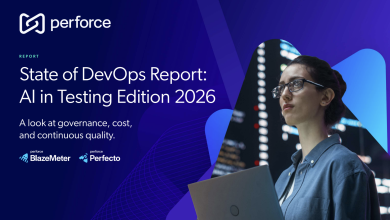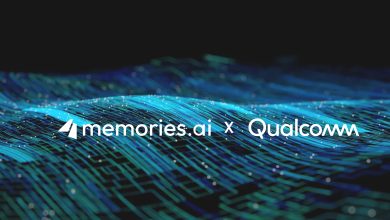
The rapid advancement of AI presents an exciting opportunity for businesses and economies alike. With the potential to boost global productivity by 1.5% annually, AI is set to drive significant GDP growth by automating processes, enhancing products and services and optimising business operations. This allows employees to shift their focus towards higher-value work, maximising efficiency and innovation.
In the UK especially, the government is conscious of the seismic impact AI can have and is actively seeking to be a global leader. The recently revealed AI Opportunities Action Plan underscores this ambition, aiming to create over 13,000 jobs within the technology sector, while increasing investment in workforce training to equip workers with the skills necessary to support AI-driven growth.
According to the World Economic Forum’s Future of Jobs Report 2025, 59% of the global workforce will require training by 2030. This dramatic workforce transformation calls for strategic approaches to talent development – making reskilling and upskilling not just beneficial but essential for individual career sustainability. This article explores the critical benefits reskilling and upskilling offers to business and employees alike.
Understanding Upskilling and Reskilling
Upskilling focuses on enhancing an employee’s existing capabilities to improve performance in their current role. This process involves building upon established skills to help employees adapt as their positions evolve with technological advancements. For instance, a marketing specialist who learns advanced digital marketing techniques incorporating AI tools is engaging in upskilling, allowing them to remain effective as their role incorporates new technologies.
Reskilling, in contrast, involves training employees to acquire entirely new skills that facilitate their transition into different roles within an organization. This approach becomes particularly crucial when certain positions become obsolete due to AI implementation and shifting market demands.
Key Skills Needed to Compete in the Age of AI
So, what does it take to stay competitive in an AI-driven world? The answer lies in a mix of technical expertise and adaptable thinking. As AI evolves, so will the skills required to deploy and optimise it – from generative AI to predictive analytics. The most crucial skill, however, is the ability to continuously learn and adapt.
To support this, the Human Adaptability and Potential Index (HAPI), provides a data-driven-approach to measuring and enhancing human adaptability. It evaluates five key dimensions essential for success in the rapidly changing AI-driven world :
- Cognitive Adaptability – The ability to learn and apply new information quickly.
- Emotional Adaptability – The capacity to navigate uncertainty and stay resilient.
- Behavioural Adaptability – The willingness to change habits and embrace new challenges.
- Social Adaptability – The skill in collaborating across teams and cultures.
- Growth Potential – The long-term ability to develop and innovate.
In the age of AI, organisations and individuals who cultivate these dimensions of adaptability will be better equipped to respond to technological disruptions and seize emerging opportunities.
The Strategies For Effective Upskilling & Reskilling
Supporting employees in the AI era requires action from organisations, industries and governments alike – starting with early education. Introducing AI concepts into school curriculums helps develop critical thinking and problem-solving skills, which are essential across all industries and will prepare future generations for an AI-driven world.
For businesses, the first step is to assess workforce needs and develop an AI strategy aligned with organisational goals. Once clear priorities are set, companies must invest in targeted upskilling and reskilling programmes to bridge skills gaps.
Motivation For Upskilling And Reskilling For Current And Future Talent
AI serves as a skill equaliser for the talent pool for both tech-driven and non-technical talent. As a relatively new technology, AI is still in a space where many lack the necessary competence and expertise. However, it is rapidly spreading, from simple tasks to highly
complex environments. This creates a wonderful opportunity to learn and leverage AI, both now and in the future. Given that some AI technologies are open-source and constantly evolving nature, AI is more accessible than ever before. As someone who has taken multiple courses in this field, I can confidently say that, even as a non-techie, AI is a fascinating space to dive into. Whether you pursue a career in AI or not, you’ll need to understand it because it’s rapidly spreading and will soon be an inseparable part of our daily lives.
The Road Ahead
AI’s evolution is unstoppable, and businesses must prioritise education and training to stay ahead. By fostering a strong AI talent pipeline, companies won’t just future-proof themselves – they’ll help position the UK as a global AI leader. This year – the focus must be on expanding access to AI education and equipping workers with the skills to drive sustainable growth. The key to successful AI learning lies not in extraordinary technical ability but in structured approaches, quality resources, practical application, and the persistence to continue learning in this fascinating and rapidly evolving field.



